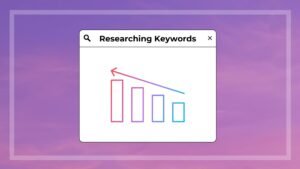In the digital age, having a strong online presence is essential for businesses and individuals alike. One of the most effective ways to improve your visibility on the internet is through blogging. However, simply writing a blog post is not enough; it must be optimized for search engines to ensure that it reaches your target audience. In this article, we will discuss how to write a good blog post for SEO.

Understanding SEO and Its Importance in Blogging
SEO, or Search Engine Optimization, is the process of optimizing your website and its content to rank higher in search engine results pages (SERPs). When done correctly, SEO can help increase organic traffic to your website and improve your visibility online. In the context of blogging, SEO is crucial because it helps your blog posts rank higher in search engine results, making them more visible to potential readers.
Researching Keywords for Your Blog Post
One of the first steps in writing a good blog post for SEO is to research keywords related to your topic. Keywords are the words and phrases that people type into search engines when looking for information online. By incorporating relevant keywords into your blog post, you can improve its chances of ranking higher in search engine results.

Crafting an Engaging Title
The title of your blog post is the first thing that readers will see, so it’s important to make it engaging and relevant to your topic. A good title should be descriptive, and concise, and include relevant keywords to improve its SEO.
Structuring Your Blog Post for SEO
When structuring your blog post, it’s important to use headings (H1, H2, H3, H4) to break up your content and make it easier for readers to navigate. Additionally, you should focus on writing quality content that is informative, engaging, and relevant to your audience. Including images with alt text can also help improve your blog post’s SEO.
Optimizing Meta Description and URL
Meta descriptions are short summaries of your blog post that appear in search engine results. It’s important to write a compelling meta description that includes relevant keywords and entices readers to click on your link. Additionally, you should optimize your URL to include relevant keywords and make it easy for search engines to crawl.
Internal and External Linking
Internal linking refers to linking to other pages on your website within your blog post. This helps search engines crawl your site more effectively and can improve your SEO. External linking, on the other hand, refers to linking to other reputable websites within your blog post. This can help improve your credibility and authority online.
Promoting Your Blog Post
Once you’ve published your blog post, it’s important to promote it to reach a wider audience. You can promote your blog post through social media, email marketing, and guest blogging. This can help drive more traffic to your website and improve your SEO.
Measuring Success with Analytics
Finally, it’s important to measure the success of your blog post using analytics. Analytics can provide valuable insights into how your blog post is performing, including the number of views, clicks, and conversions. This information can help you refine your SEO strategy and improve future blog posts.
In conclusion, writing a good blog post for SEO requires careful planning and execution. By following the tips outlined in this article, you can improve your chances of ranking higher in search engine results and reaching a wider audience online.
FAQs
1. How long should a blog post be for SEO?
A blog post should typically be at least 300-500 words long to be considered by search engines. However, longer, more in-depth posts (1500+ words) tend to perform better in terms of SEO.
2. How often should I publish blog posts for SEO?
The frequency of publishing blog posts can vary depending on your goals and resources. However, it’s generally recommended to publish new content regularly to keep your audience engaged and improve your SEO.
3. Should I use images in my blog posts for SEO?
Yes, using images in your blog posts can improve their SEO, especially if you use descriptive alt text and file names. Images can also make your content more engaging for readers.
4. Do I need to include keywords in my blog post?
Yes, including relevant keywords in your blog post is important for SEO. However, it’s important to use them naturally and avoid keyword stuffing, which can harm your SEO.
5. How long does it take for a blog post to rank on Google?
The time it takes for a blog post to rank on Google can vary depending on various factors, such as the competitiveness of the keyword and the quality of your content. In general, it can take anywhere from a few weeks to several months for a blog post to rank on Google.
